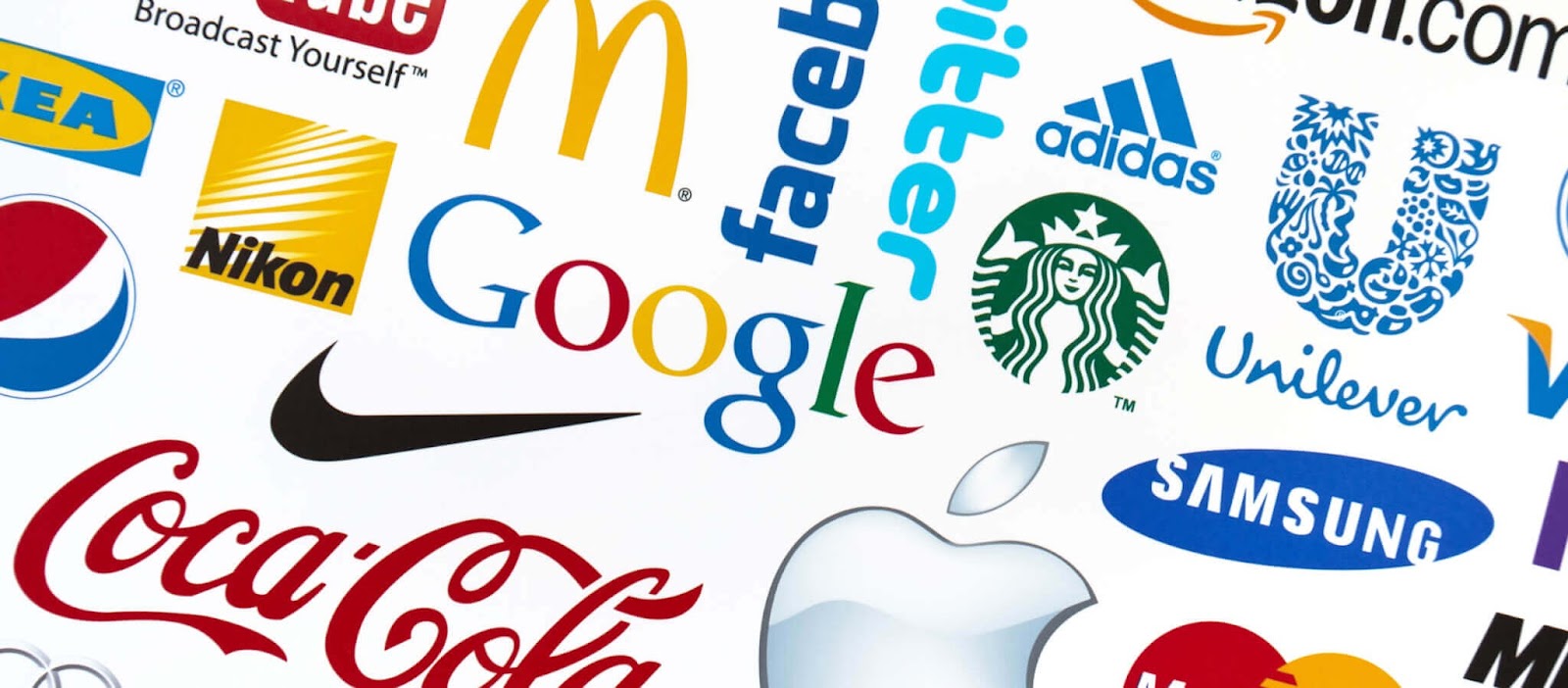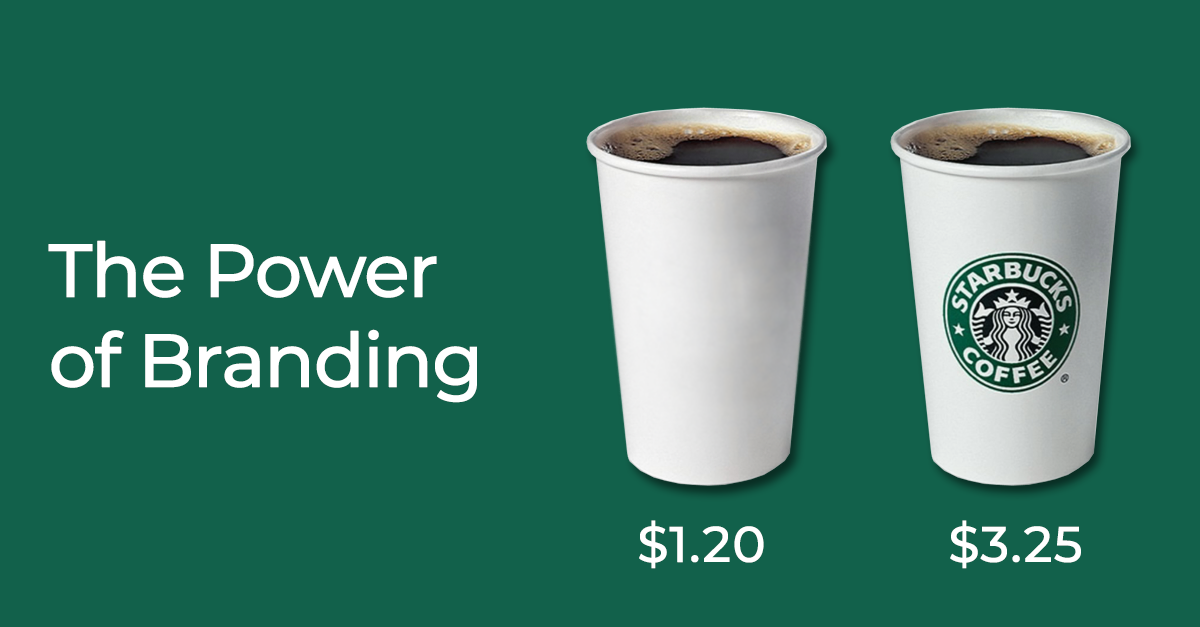Why Branding is Important for a Business - A Comprehensive Guide

Introduction
A brand is essentially a business or product's personality that distinguishes it from competitors. It's more than just a logo or a catchy slogan; it's the entire customer experience. Here’s how to break it down.
Recognition

A strong brand makes you unforgettable. It's the reason you instantly recognize Coca-Cola from its red can and swooshing logo, or Apple from their sleek design and bitten apple symbol. This instant recognition can significantly impact consumer choice. In fact, studies have shown that customers are more likely to purchase products from brands they recognize, even if they don't know much about the product itself.
Perception

Your brand shapes how customers view you. It goes beyond just the product; it includes the company's values, mission, and the emotions it evokes. For example, Volvo is synonymous with safety, while Samsung is associated with innovation. This perception can make or break your business. A positive brand perception builds customer trust and loyalty, while a negative one can be detrimental.
Differentiation

In a crowded marketplace, a strong brand sets you apart. It's what convinces a customer to choose your product over similar ones. For instance, maybe you prioritize organic ingredients like Whole Foods or offer exceptional customer service like Ritz-Carlton. Differentiation is crucial because it provides customers with a clear reason to choose your brand over others. Without it, your business might get lost in a sea of competitors.
Overall, your brand is the sum of all these parts. It's a promise to your customers about what they can expect from you. By building a strong brand, you create a loyal following and a sustainable advantage in the business world.
Key Benefits of a Strong Brand
Building a strong brand involves a thoughtful and deliberate approach. Here's a roadmap to get you started:
1. Brand Recognition
A strong brand helps customers remember your business and differentiate you from competitors. This is especially important in crowded marketplaces. Recognizable brands are more likely to be chosen by customers, leading to increased sales and market share.
2. Customer Trust and Loyalty
A well-established brand builds trust with customers. Customers are more likely to do business with a company they perceive as reliable and credible. Strong brands can also foster customer loyalty, encouraging repeat business and positive word-of-mouth marketing. This loyalty is invaluable, as retaining existing customers is often more cost-effective than acquiring new ones.
3. Marketing and Advertising
A strong brand makes your marketing and advertising more effective. A clear and consistent brand message resonates with consumers and makes your marketing materials more impactful. Consistency in branding across all marketing channels helps reinforce your message and strengthens your brand's presence in the market.
4. Premium Pricing
Strong brands can command premium prices for their products or services. Customers are often willing to pay more for a brand they trust and associate with quality. This can significantly improve your profit margins and overall financial performance.
5. Employee Pride
A strong brand can also boost employee morale. Employees who feel good about the company they work for are more likely to be productive and provide excellent customer service. This sense of pride can lead to better employee retention and a more positive workplace culture.
Overall, a brand is a valuable asset for any business. It's not just about a logo or a tagline; it's about the entire customer experience. By investing in building a strong brand, you can create a sustainable competitive advantage for your business.
How to Building a Strong Brand
Building a strong brand involves a thoughtful and deliberate approach. Here's a roadmap to get you started:
1. Define Your Target Audience

Who are you trying to reach? Understanding your ideal customer's demographics, needs, and preferences is crucial. This will guide your entire branding strategy. Conduct market research, create buyer personas, and gather insights to deeply understand your audience.
2. Craft Your Brand Identity

This is the core of your brand - its essence. Develop a mission statement that captures your purpose and values. What makes your brand unique? Define your brand’s voice and personality to ensure consistency in how you communicate with your audience.
3. Research Your Competitors

Analyze what your competitors are doing well and where you can differentiate yourself. This will help you identify your unique selling proposition (USP). Understanding the competitive landscape allows you to position your brand strategically.
4. Develop a Strong Value Proposition

What benefit does your brand offer customers? Why should they choose you? Clearly communicate the value you deliver. Your value proposition should be compelling and address the needs and pain points of your target audience.
5. Design Your Brand Image

Create a memorable visual identity that reflects your brand personality. This includes your logo, colors, typography, and overall design aesthetic. Your brand image should be consistent across all touchpoints to ensure recognition and trust.
6. Content is King

Develop high-quality content that resonates with your target audience. Content marketing establishes your brand as a thought leader and builds trust. Blog posts, videos, infographics, and social media updates are all powerful tools to engage your audience.
7. Be Consistent

Maintain brand consistency across all marketing channels, from your website and social media to your packaging and customer service interactions. Consistency helps build a strong, cohesive brand that customers can rely on.
8. Track and Analyze

Maintain brand consistency across all marketing channels, from your website and social media to your packaging and customer service interactions. Consistency helps build a strong, cohesive brand that customers can rely on.
A brand is essentially a business or product's personality that distinguishes it from competitors. It's more than just a logo or a catchy slogan; it's the entire customer experience. Here’s how to break it down:
Monitor your brand's performance and adapt your strategy as needed. Gather customer feedback and use data to measure your brand's impact. Regularly review your branding efforts and make adjustments to stay relevant and effective.
Remember, brand building is a continuous process. By consistently delivering on your brand promises and engaging with your audience, you can build a strong and lasting brand that will propel your business forward.
About Eleven:11 Marketing Agency
At eleven:11 Marketing Services, we specialize in helping businesses build and strengthen their brands. Our team of experts is dedicated to crafting unique brand identities that resonate with your target audience and set you apart from the competition. With a focus on innovative digital marketing strategies, we ensure that your brand not only stands out but also thrives in the digital landscape. Whether you're looking to create a new brand from scratch or revitalize an existing one, eleven:11 Marketing Agency is here to help. Partner with us to create a memorable brand that leaves a lasting impression and drives business success.
Still have questions?
Feel free to reach out to us for further assistance.
